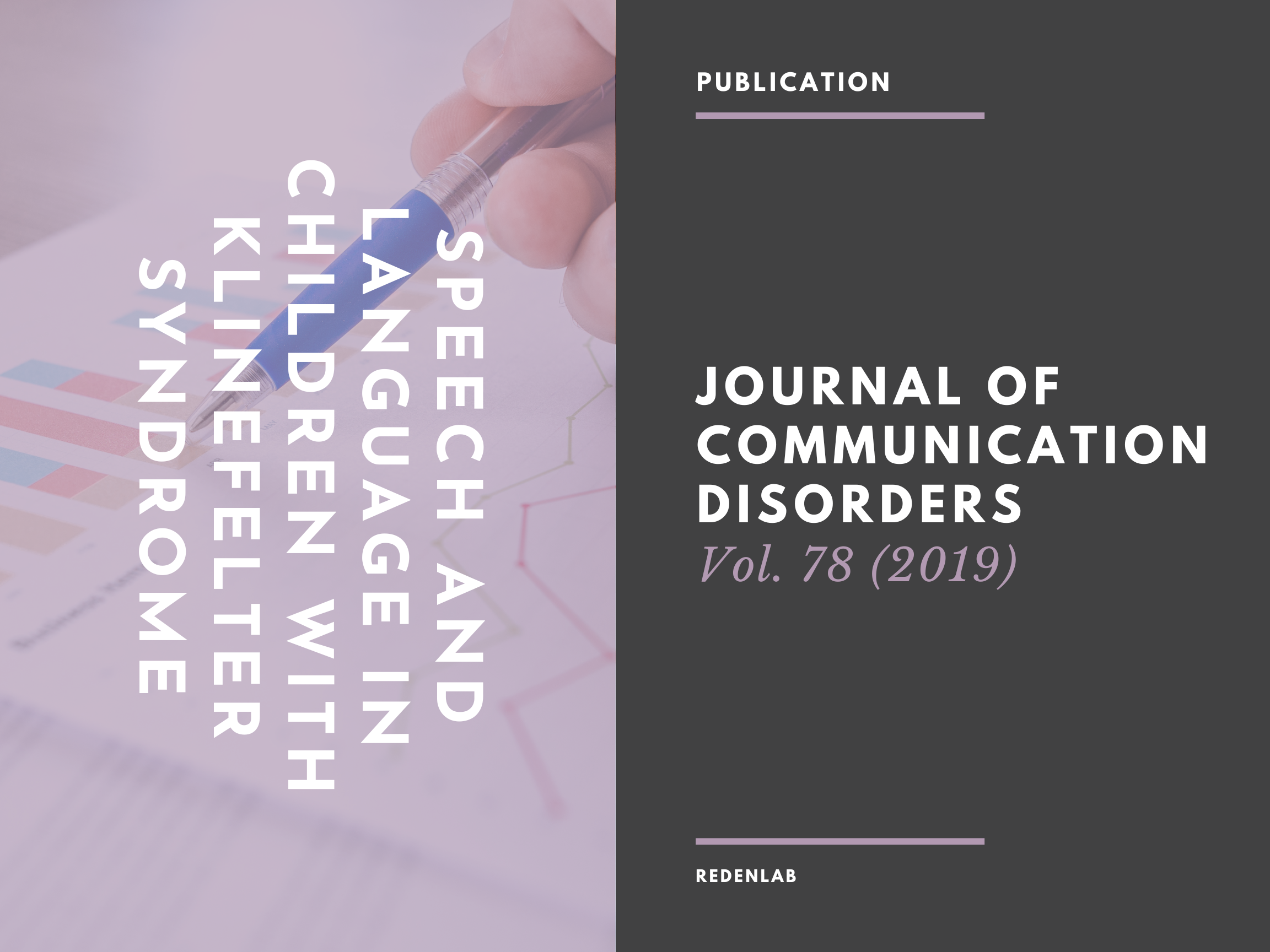Speech and language in children with Klinefelter syndrome

Background
Speech and language deficits are frequent in males with Klinefelter syndrome (KS), yet the research base is slim and specific strengths and deficits in communication have not been well characterised. Nor have studies examined communication abilities across a wide age-range from infancy to adolescence.
Objective
To characterise communication in children and adolescents with KS.
Method
Twenty-six males, aged 1;1 to 17;4 years, took part in the study. Oromotor, speech, language, literacy and pragmatic abilities were assessed.
Results
Communication impairment was seen in 92% of cases (24/26), with salient findings being impairments in social-pragmatic language (15/18; 83%), language-memory (12/15; 80%) and literacy (13/17; 76%). Mild to severe receptive and expressive language deficits were common (16/23; 70%), although performance was varied across linguistic domains of semantics, syntax, and morphology. Oromotor impairment (21/21; 100%) and speech impairments were evident from preschool through to adolescence. Whilst speech was highly intelligible (22/26; 85%), articulation errors (12/26; 46%), phonological delay (12/26; 46%), phonological disorder (5/26; 19%) and dysarthria (2/23 8.7%) were observed. Other atypical, yet mild, speech features were noted such as hyponasality (16/23; 70%).
Conclusions
Language, literacy and social-pragmatic deficits are common in KS. Data suggested a trend for more notable deficits with age and increasing academic and social demands. We added novel data on the nature of speech production deficits, including persistent phonological errors in a number of cases. Earlier detection and intervention of phonological errors may reduce the risk for later language and literacy challenges and optimise academic, and ultimately social and behavioural difficulties later in life.
Click here for more details.
